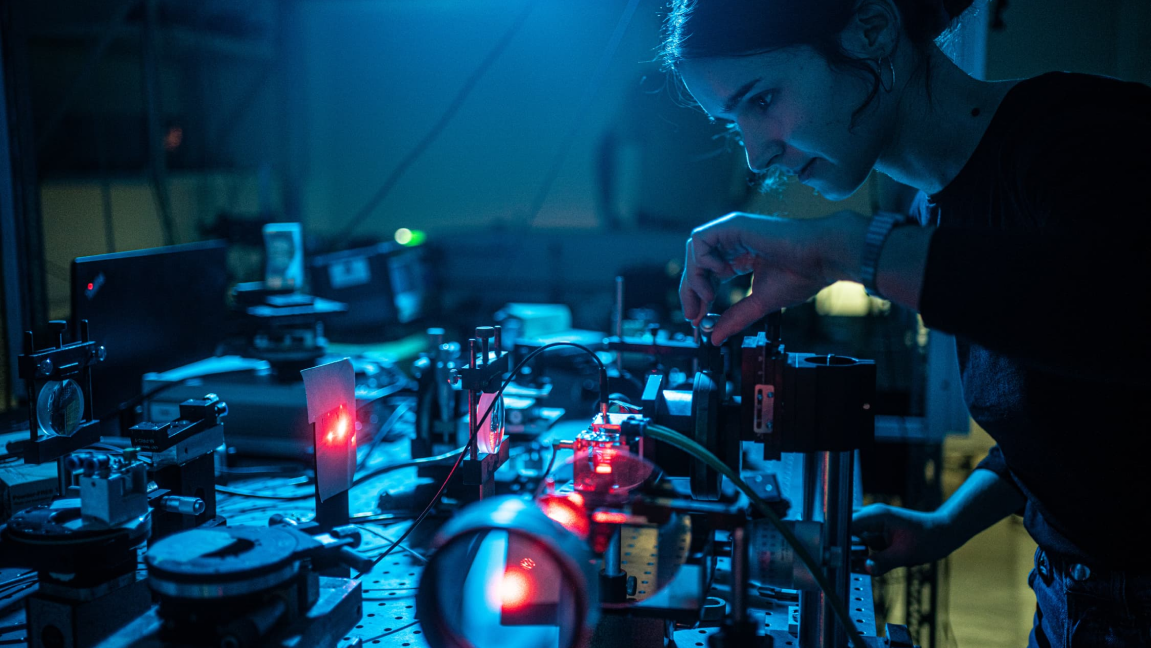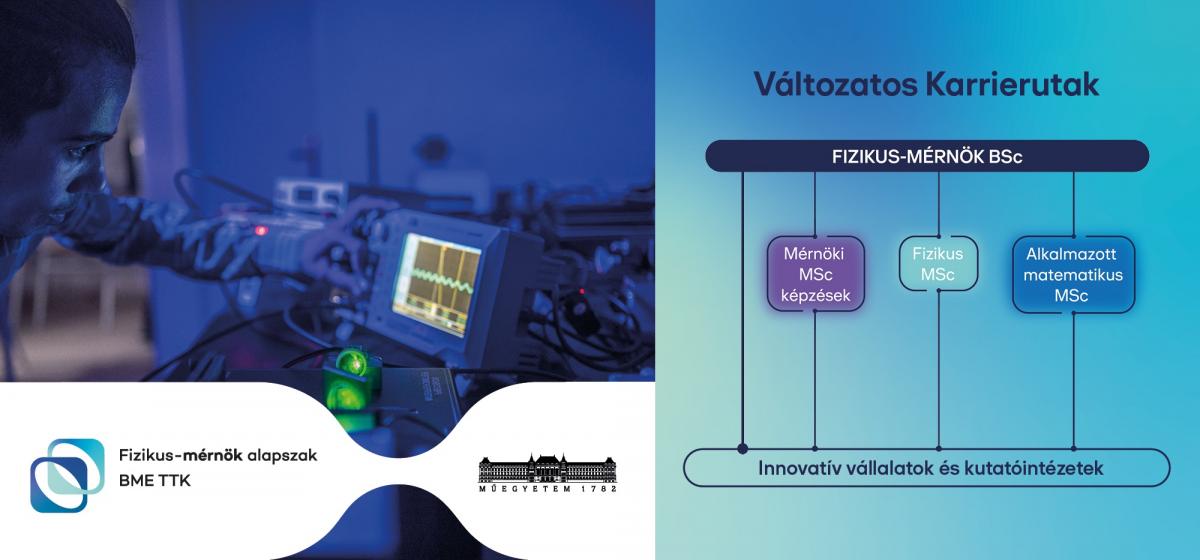News feed
The Future is Now: Physicist-Engineer Training at BME
2024. 02. 08.The demand for IT, natural science and engineering skills is set to rise dramatically, according to a US study. The Physicist-Engineer programme is designed to meet these growing needs.
BME’s Physicist-Engineer programme in English has been modelled on courses at leading Western technical universities. In an era of accelerated technological development, there is a great need for professionals with innovative and readily applicable engineering skills built on strong scientific knowledge and solid mathematical and physical foundations. Future professions will emerge from dynamic sectors such as artificial intelligence, information technology, pharmaceuticals, medical technologies and interdisciplinary studies, including BME’s Physicist-Engineer programme. Notably, according to a study by the Boston Consulting Group, there will be an increased demand for expertise in computer science, natural sciences, technology, mathematics and engineering. BME Physicist-Engineer students will be trained in closely related fields, allowing them to gain a competitive, multi-layered knowledge foundation that emphasizes innovation and highlights the value of intellectual property in adjusting to ever-evolving trends.

Technological advancements are not confined to large national and international companies: they also abound within the university, providing students with exciting R&D challenges. This is vividly illustrated by the doctoral dissertation of Ábel Sulyok, a young researcher at the BME Institute of Physics, who delved into head-up displays (HUD) projected onto car windshields. Ábel, along with his doctoral advisor and business partner, is leveraging his research findings to pioneer the next generation of display technologies: they have set up a spin-off company to further develop and commercialise the results patented by the university.
In 2024, aHead Photonics Kft. will embark on the development of a built-in HUD prototype in collaboration with physicists, engineers and IT specialists. Subsequently, in 5 to 6 years, the special wide-angle display designed to enhance driving safety – and even double as a home theatre in self-driving cars – could be introduced to the market in partnership with BME and several automotive suppliers.
Titusz Fehér, Vice Director of the BME Institute of Physics, shared his thoughts on the success of the Physicist-Engineer BSc programme at BME with the Uniside education portal.

What does the BME Institute of Physics offer to those interested in further pursuing their studies?
We currently offer the recently launched Physicist-Engineer BSc programme as well as the Bachelor of Physics and Master of Physics programmes.
What sets these courses apart from other programmes available at BME?
Our Bachelor's and Master's degrees in Physics are aimed primarily at individuals aspiring to pursue careers as physicists, whether in industrial R&D, academia, or at research institutes. Moreover, thanks to the practical focus of our curriculum, our graduates often find employment as programmers, data scientists, or in fields related to artificial intelligence.
Our Physicist-Engineer BSc programme is even more hands-on, leaning less heavily on theory and focusing on effectively preparing students for engineering roles, and specifically, for collaboration with engineers. The course integrates information technology, the computer-aided solution of computation and design problems, and the cultivation of mass data collection, processing and analytical skills. It's worth noting that our Physicist-Engineer program is entirely conducted in English, aiming to attract a diverse cohort of international students, since the literature in this field is also predominantly in English and many projects require international collaboration. The programme is tailored to accommodate individuals with at least an intermediate level of English proficiency. In the first year of the course, we offer language support materials, consultations, and assessments in Hungarian to facilitate smoother integration.
Detailed information is available in the course profile or on the programme’s website. Explore other future-shaping courses at BME through our course finder!
Rector’s Cabinet Communications Directorate - BME Faculty of Natural Sciences
